Friday, May 9
Autism Insurance Legislation
Florida's Senate Bill 2654 Important Step in Requiring Coverage of Necessary Autism Therapies
NEW YORK, NY (May 5, 2008) Autism Speaks today joined Florida families in applauding Governor Charlie Crist and the state's legislators for passing Senate Bill 2654, which will ultimately require insurance carriers to provide coverage of evidence-based, medically necessary autism therapies. Governor Crist is expected to sign the bill into law in the coming weeks. In many states, insurers explicitly exclude coverage of these therapies from policies, which places a significant financial burden on families seeking to provide their children with necessary services. Autism Speaks has launched a multi-state initiative to address this discrimination.
Senate Bill 2654 – passed by the House in the very last minutes of the legislative session -- requires that insurance companies cover up to $36,000 a year for Applied Behavior Analysis and other therapies for children under age eighteen, with a lifetime limit for treatments of $200,000. The legislation gives insurance companies until April 2009 to negotiate a compact with the State Office of Insurance Regulation to develop autism coverage plans before the mandate takes effect.
“This new Florida law represents crucial progress in the national effort to secure autism insurance coverage and end discrimination again families facing autism,” said Elizabeth Emken, Autism Speaks vice president of government relations and a member of the Florida Taskforce on Autism Spectrum Disorders. “This bill mandates significant insurance benefits for the medically necessary interventions that are critical to the quality of life of children with autism. It also provides a voluntary compliance process through which the insurance industry can avoid the statutory mandate by agreeing to provide appropriate benefits for autism.”
Autism Speaks intends to remain involved in the insurance compact process created by SB2654, working with Governor Crist -- a strong supporter and champion of this cause – to ensure that the compact negotiations produce appropriate benefits for the deserving children of Florida.
In addition to Governor Crist, Autism Speaks hailed Senator Steven Geller, for whom the insurance section of SB2654 is named, and Representative Ari Porth and Senate President Kenneth Pruitt for their unwavering leadership in support of this landmark legislation. The organization also thanked Speaker Marco Rubio and his wife Jeanette, and Representative Andy Gardiner for their efforts.
About Autism Speaks
Autism Speaks is dedicated to increasing awareness of autism spectrum disorders, to funding research into the causes, prevention and treatments for autism, and to advocating for the needs of individuals with autism and their families. It was founded in February 2005 by Suzanne and Bob Wright, the grandparents of a child with autism. Bob Wright served as chairman and chief executive officer of NBC Universal for more than twenty years. To learn more about Autism Speaks, please visit www.autismspeaks.org.
Thursday, March 6
Ga. girl helps link autism to childhood vaccines
By ALISON YOUNG
The Atlanta Journal-Constitution
Published on: 03/06/08
In a move autism family advocates call unprecedented, federal health officials have concluded that childhood vaccines contributed to symptoms of the disorder in a 9-year-old Georgia girl.
[Post comments below.]
John Spink/AJC | ||
| Hannah Poling requires one-on-one care at all times. Her family is trying to get details of her case opened for public review. | ||
John Spink/AJC | ||
| Jon and Terry Poling with 9 year-old daughter, Hannah. They couple says the symptoms of autism began in Hannah after shots she received during a doctor visit when she was 19 months old. | ||
|
While government officials continue to maintain that vaccines don't cause autism, advocates say the recent settlement of the girl's injury case in a secretive federal vaccine court shows otherwise.
The U.S. Department of Health and Human Services has concluded the family of Hannah Poling of Athens is entitled to compensation from a federal vaccine injury fund, according to the text of a court document in the case. The amount of the family's award is still being determined.
The language in the document does not establish a clear-cut vaccine-autism link. But it does say the government concluded that vaccines aggravated a rare underlying metabolic condition that resulted in a brain disorder "with features of autism spectrum disorder."
In an interview Wednesday with The Atlanta Journal-Constitution, Hannah's parents, Jon and Terry Poling, said the government's concession in the case will help pay for the numerous therapists and other medical experts their autistic child needs — now and for the rest of her life.
"At least we have some commitment from the government to take care of Hannah when we're gone," said Dr. Jon Poling, a neurologist.
But the case also thrusts the family into a national spotlight in the controversial public debate over whether vaccines have played some role in the growing number of U.S. children diagnosed with autism. Of particular concern to some families is the mercury-based preservative thimerosal, not used in child vaccines (except for some flu shots) since 2001.
Hannah's case was one of three vaccine-court test cases alleging that thimerosal caused the children's autism. The other cases go to trial in May.
Suspicion of vaccines is fueled in part by vocal advocates — including radio shock jock Don Imus and actress Jenny McCarthy — speaking out on radio and TV shows such as "Oprah" and "Larry King Live."
Even Republican presidential candidate Sen. John McCain said on the campaign trail that "there's strong evidence" that a preservative in vaccines is fueling the dramatic rise in autism cases across the country.
As many as 1 in 150 children in some communities have autism disorders, says the Centers for Disease Control and Prevention.
"We need to recognize this is a national crisis," Jon Poling said.
Autism is a lifelong neurological disorder that causes problems with communication and the ability to have normal social interactions. Autism and related autism spectrum disorders cover a range of symptoms that can vary from mild to severe. The cause is unknown, but scientists believe genes may play a role.
Pediatricians and public health officials worry that this case may cause fear among some parents and prompt them to refuse to vaccinate their children, and put them in real danger from measles, whooping cough and other diseases.
"The risks of diseases are real risks," said Dr. Melinda Wharton, deputy director of CDC's National Center for Immunization and Respiratory Diseases. Numerous large studies don't support a relationship between vaccines and autism, according to the CDC and the Institutes of Medicine.
The Georgia girl's case – and its implications in the vaccine-autism debate – raise more questions than it answers, experts say.
Some medical experts say it's difficult to fully assess the case because the federal vaccine-court documents are sealed from public view.
"It raised a lot of questions for us," said Dr. David Tayloe Jr., president-elect of the American Academy of Pediatrics. The national medical group's leadership has been seeking more information about Hannah's vaccine-court case since last week when a sealed vaccine-court document detailing the government's settlement was posted on the Internet by an autism book author, then circulated widely among autism groups.
The pediatrics association has been trying to get access to official documents in the case so medical experts can delve into the science, assess whether there are implications for other children and answer questions from doctors and families.
"Our responsibility is to make sure the public is given good information and make sure the hype doesn't distract from public health," Tayloe said. "I still would not think that we're going to have evidence showing a role of vaccines actually causing autism."
According to the leaked document posted online, the government's Division of Vaccine Injury Compensation concluded that five shots Hannah received in July 2000, when she was 19 months old, "significantly aggravated an underlying mitochondrial disorder" and resulted in a brain disorder "with features of autism spectrum disorder."
Sallie Bernard, executive director of the national autism advocacy group SafeMinds, called the case "unprecedented" in that a link between vaccines and autism is being made public. Federal health officials "have insisted there is no link at all between vaccines and vaccine components and autism. And apparently that is not true," she said.
The case also is significant because other autistic children have mitochondrial disorders, Bernard said. "The question is: What is the proportion?"
Robert Krakow, a New York attorney representing other autistic children in vaccine court, said the significance of the case is "potentially explosive." He said he has several clients with similar histories.
Hannah requires one-on-one care at all times, said her mother, Terry Poling, a nurse and lawyer. The Polings described how Hannah was a normal, verbal toddler until she received several vaccines during a well-baby visit. Within 48 hours of the shots, she developed a high fever and inconsolable crying and refused to walk. She stopped sleeping through the night. Within three months after receiving the vaccine, she began showing signs of autism, including spinning and staring at lights and fans. For a while, she lost her ability to speak.
Then, within six months after the shots, as the family came to grips with the likelihood that she was autistic, they turned to leading experts in neurology. "I had to know. My daughter didn't just suddenly develop autism for no reason," Terry Poling said.
Hannah's father co-authored an article about her case, which was published in the Journal of Child Neurology in 2006.
Hannah, who has two older brothers, continues to have mild to moderate symptoms of autism. The family says early and ongoing intensive therapy has been critical for her.
"The biggest question right now for the public is: How unique is Hannah's case?" said Jon Poling. Poling said he suspects there are other children like Hannah.
Cliff Shoemaker, the Polings' attorney, said the family has filed a petition with the vaccine court to unseal all of Hannah's records and allow both the family and the government to fully discuss the case.
Despite this, a spokesman for the U.S. Department of Justice, which reprersents the government in court cases, would not grant interviews or explain to the AJC why it isn't releasing the records. HHS officials, who administer the vaccine compensation fund, also declined to be interviewed, citing the court's confidentiality requirements.
Shoemaker said the government's November concession in the case is public, but the government's reasons aren't. "I'm not aware of any other conceded autism cases," he said.
Congress created the National Vaccine Injury Compensation Program in 1988 after widespread lawsuits against manufacturers and health-care providers stemming from reports of side-effects of a version of the diphtheria-tetanus-pertussis vaccine used in the 1980s.
With companies getting out of the vaccine business for liability reasons, Congress established the program and a trust fund to serve as a no-fault alternative for resolving certain vaccine injury claims.
The average injury compensation to an individual in vaccine court has been about $1 million. In fiscal year 2007, more than $91 million was awarded
to people harmed by vaccines.
Friday, February 1
ABC - Eli Stone - Autism - Vaccines
He basically said everything I was thinking ...
_______________________________________________Pediatricians, ABC and Censorship: Facts Are Scarier Than Fiction
The letter, signed by AAP President Renee Jenkins, borders on near-hysteria over a fictional television entertainment. It ominously warns that ABC "will bear responsibility for the needless suffering and potential deaths of children from parents' decisions not to immunize based on the content of the episode."
Dr. Jenkins calls on ABC to cancel the episode but, anticipating a refusal, urges executives to run a disclaimer that "no scientific link exists between vaccines and autism," if the offending network "persists" in airing the show.
I share the AAP's concern that parents should not be driven away from protecting their children from dangerous, even deadly diseases. But parents are far too smart to base such an important decision as immunization on the "content of the episode" of a single drama on broadcast television.
In fact, if I were Dr. Jenkins, I would be far more concerned about real news happening in the real world - events that not only suggest the possibility of some sort of link between mercury, vaccines and autism, but might alarm parents more than any fictional account written for ratings-grabbing mass entertainment.
If I were Dr. Jenkins, instead of fretting over a fake family engaged in a mock trial held in a make-believe court on some LA soundstage, I would be up at night wondering why the Federal Government recently conceded a real vaccine-autism lawsuit in a real court and will soon pay a real (taxpayer-funded) settlement to a real American family and a very real child with autism.
I would want to know why the Department of Justice agreed that mercury-containing vaccines "severely aggravated" the autism symptoms in at least one child, and I would wonder if research into what triggered that severe aggravation might provide at least some clues into the perpetual mysteries of the disorder and its causes.
And, if I were Dr. Jenkins, rather than wringing my hands and trying to censor a TV-show verdict, I would truly worry about what will happen when parents realize that the Federal Government has sealed the facts of that vaccine-autism case - preventing the public (and future plaintiffs) from viewing what could only be described as "evidence of harm." I would be nervous that this secretive action in an actual court (itself reminiscent of science fiction) might drive parents away from vaccination far more effectively than any scripted drama.
Furthermore, if I were the top pediatrician in America, I would not be asking television networks to make sweeping statements such as, "No scientific link exists" between autism and mercury or vaccines, when highly respected publications continue to publish new (and very real) data that roundly debunk what has now become, frankly, a tired piece of misinformation.
If I were the AAP, or ABC for that matter, I would feel downright silly stating that "no scientific link exists," so soon after the Journal of Child Neurology published a study titled, "Blood Levels of Mercury Are Related to Diagnosis of Autism: A Reanalysis of an Important Data Set." I would also worry about parental reaction to learning that researchers had done due diligence and reanalyzed data from a prior, hugely influential study that (erroneously) found zero connection between mercu! ry levels and autism.
Instead of trying to silence the fictional words of "Eli Stone" co-creators Greg Berlanti and Marc Guggenheim, I would pay closer attention to the real words of Journal authors M. Catherine DeSoto and Robert Hitlan, who found a major flaw in the original study that found no link. In fact, they concluded, "a significant relation does exist between the blood levels of mercury and diagnosis of an autism spectrum disorder," and that "hair sample analysis results offer some support for the idea that persons with autism may be less efficient ... at eliminating mercury from the blood," something that proponents of the mercury-autism hypothesis have long contended.
And, I would heed this rather wise warning from the authors: "If there is any link between autism and mercury, it is absolutely crucial that the first reports of the question are not falsely stating that no link occurs."
Another study, freshly out of Harvard, likewise shows a potential link between mercury and the autopsied brains of young people with autism. The American Journal of Biochemistry and Biotechnology reports that a marker for oxidative stress was 68.9% higher in autistic brain issue than controls (a statistically significant result), while mercury levels were 68.2% higher.
And though the mercury results did not quite reach statistical significance (probably due to the small number of autistic brains studied: 9), the authors cautioned that, "However, there was a positive correlation between (oxidative stress and mercury levels)," meaning the two might be associated.
Finally, if part of my AAP job description was to ensure that every American child is vaccinated as early and often as possible, I would be hugely apprehensive, not about a new courtroom drama, but rather about a dramatic new study soon to appear in the Journal of Allergy and Clinical Immunology
.
In her article, "Delay in DPT vaccination is associated with a reduced risk of childhood asthma," Anita Kozyrskyj, an asthma researcher at the University of Manitoba, combed the medical records of 14,000 children born in Manitoba in 1995 (when many Canadian shots still contained mercury, by the way).
Kozyrskyj found that children who received the DPT (diphtheria, pertussis and tetanus) vaccine at two months of age were 2.63 times more likely to develop asthma (at a rate of 13.9%) than children who were not given the shot until after four months of age (5.9%). "We're thinking that maybe if you delay this allergic response until a bit later, the child's immune system is more developed and maybe you're not seeing this effect," Kozyrskyj told the Winnipeg Free Press, which just broke the story.
No one wants infant children to go unprotected from whooping cough (or pertussis, the "P" in DPT). But what if delaying that vaccine could have prevented more than half of the asthma cases in the United States? With millions of children currently suffering from the disease, at the cost of billions of dollars a year, would waiting another two months improve the risk-benefit ratio for society (save for the companies that market those asthma medications)?
Even more importantly, if too-early vaccination causes asthma in some kids, could the practice cause other disorders? There is absolutely nothing to link this vaccine study to autism, of course. But consider the following:
1) Many asthma cases have been linked to autoimmunity. The same with autism.
2) Childhood asthma has been dramatically increasing for two decades. The same with autism.
3) Most of the children with asthma in the vaccine study were boys. The same with autism.
Any way you look at it, this study is hardly reassuring news to parents who are about to vaccinate their kids (though think how comforting it would be to allow them to delay this shot by two months). Medicine and the media constantly tell us that all vaccines are safe for all children. When parents try to jive that information with studies that imply the opposite, their faith and trust in public health and the immunization program begin to take a nosedive, along with vaccination rates.
It's not just the broadcast of fiction out of ABC that might drive parents away from immunization. It is the negation of fact out of the AAP as well. And if unvaccinated children get sick, will the esteemed Academy also "bear responsibility," or just heap it all upon the network?
ABC executives could cave in and cancel the broadcast, but I don't think they will. And even if America's pediatricians manage to successfully censor fiction and crush artistic freedom, they will never be able to stifle the facts.Friday, January 11
Katie Wright speaks out again!
It is about time!!! Thank you Katie!!
___________________________________________________
KATIE WRIGHT ON AUTISM SPEAKS' GRANTS
By Katie WrightPeople frequently ask me what I think of Autism Speaks and are surprised by my answer. I believe the creative team, the administrative staff, the incredibly hard working special event and Walk staffers are amazing. They all could be pursuing more lucrative careers elsewhere but truly want to help autistic kids and their families.
My parents, Bob and Suzanne Wright, are also tireless in their efforts to bring attention to the needs of our families. At a time when it seems as if the whole world, especially in the Middle East, is angry with the United States, my Mom has successfully engaged in a wonderful collaboration with the Sheika of Qatar in order to have the United Nations declare a World Autism Day. This is only the third time the U.N. has recognized a disease in such a way. Autism Speaks has, undoubtedly, lifted the shame and isolation so many families felt by forcing autism into many public forums in the media and government. Their work on insuranc! e re-imbursement is also extremely important to all our cash strapped families.
It is Autism Speaks’ scientific advisors that I find myself at great pains to understand.
It appears as if they are wedded to the past and are non-responsive to what parents want and the immediate needs of our children. By any measure, autism is worse than ever and traditional research has yielded few breakthroughs for children living today. So many ASD children are living with horrible GI disease, seizures, serious immune deficiencies, pain induced self-abusive behavior…
Meanwhile AS has funded eye gazing research on fruit flies, a study on the olfactory senses in worms, endless gene research, yet nothing relevant to the pain my child lives with on a daily basis. Parents have waited for three years in hopes of seeing real biomedical research. Of course there is a place for gene and brain research in autism, but not at the expense of toxicology, immunology, regression, gastrointestinal and vaccine safety research. Preservatives in children’s vaccines such as: aluminum, ammonia, formaldehyde, mercury and human embryos ! have never been adequately researched or proven to be safe, nor has the CDC’s extremely aggressive vaccination schedule. Everyday infants are injected with these preservatives, combination vaccines and live viruses. There is no more time to waste. We are in the midst of a catastrophe and must be unafraid in pursuit of answers.
It appears as if AS grants are selected less as a result of the significance of a research proposal but more as a consequence of the financial resources of academic institutions to put forth in producing most professional and conservative grant applications. Instead of funding impactful, breakthrough science, millions of dollars are spent on researching the same safe subjects over and over again. Numerous exciting, innovative and progressive biomedical grants on GI disease, methylation pathways and toxicity, vaccinated and unvaccinated siblings have been repeatedly rejected due to ignorance and fear. It is past time for the scientific advisory boards to think outside the box and pursue the bold research parents want and our children desperately need.
Donald Trump’s recent comments are wonderfully illustrative of how out of touch with reality the AS’ SAC is. Mr. Trump is the parent of a young boy and is horrified by the recent explosion of autism. Mr. Trump stated that he believes the “massive” increase in vaccines for infants could account for autism’s rising numbers. Mrs. Melania Trump has spoken openly about how she spaces out Barron’s vaccinations. So while some SAC scientists still debate whether or not autism is actually increasing, why it one in 90 American boys in the spectrum does not equal an epidemic and pursue their lonely quest to find the “autism genes,” parents have moved on.
Regarding the most recent grants for young investigators, I question the wisdom in investing such great financial resources in researchers new to the field while the grants of experienced DAN! physicians who work to recover kids every day are continually ignored. AS needs to invest in doctors who have been treating and recovering so many autistic children, not just in academics with the best team of professional grant writers. Hopefully, Autism Speaks’ summertime clinical grants will reflect a broader, more biomedical and relevant approach to helping our children. In the meantime, I encourage parents to educate themselves about biomedical interventions via other websites, such as: NAA, SafeMinds, ARI, TACA, Generation Rescue, FAIR Media and Thoughtful House.
I know that Autism Speaks is trying to change. There are some truly courageous voices on the SAC, but they are too few. I am, however, optimistic that Dr. David Baskin’s new environmental committee will green light some exciting research. I am also hopeful that Dr. Geraldine Dawson, AS’ new Chief Scientific Officer, will be more proactive than her predecessor and champion the innovative environmental research families want to see funded.
On another subject I want to thank Deirdre Imus for her wonderful essay in the Huffington Post about the New Jersey vaccine mandate. I feel heartbroken for the New Jersey parents who must choose between day care, school and more vaccines for their toddlers and school age children. Why mercury has not been removed from every flu vaccine simply defies comprehension. One would think that New Jersey, possibly the autism capital in the country, would approach vaccine mandates with great caution. One in 60 New Jerse! y boys is on the autistic spectrum and the vast majority of parents believe that vaccines played a role in triggering the disorder in their children.
It is astounding that the American Academy of Pediatrics yet again, ignores parents’ concerns and testifies, again, in favor of the adding even more vaccines to the overcrowded schedule. Exemptions will be almost impossible to procure. Parents with one ASD child are now placed in the horrible position of having to over-vaccinate younger siblings, despite their well-founded concerns about the impact of so many live viruses, dangerous preservatives and combination vaccines on a developing brain.
It is time for the researchers, politicians and the AAP to stop listening only to each other and start listening to the families of autistic kids.
Katie Wright has two young boys. Her oldest son, Christian, is severely affected by autism. He developed normally; smiling, talking, walking; only to lose every skill and every word by the age of 2 and a half. Upon the advice of medical professionals Katie and her husband were advised to pursue only high quality behavioral therapy, speech and OT for Christian. It had no meaningful impact on Christian until his parents sought help from DAN! doctors who treated the underlying causes of Christian's descent into autism. Christian has improved but still has far to go. He has Inflammatory Bowel Disease, the measles virus in his gut and an immune system akin to a late stage AIDS patient. Christian does not have a psychiatric disorder. Before autism, Katie Wright was the Clinical Director of Sexual Assault Crisis Center in Stamford Connecticut. Katie is proud to serve on the Boards of NAA and SafeMinds.
Saturday, December 8
●○● Age of Autism Article
AGE OF AUTISM "Q&A" THE SACRED COW (VACCINES) AND AUTISM IN INDIA
 Age of Autism Q&A is a new feature by Dan Olmsted. We hope you enjoy it.
Age of Autism Q&A is a new feature by Dan Olmsted. We hope you enjoy it.
By Dan Olmsted
A recent Senate report that absolved public officials of misconduct in reviewing the safety of the mercury preservative Thimerosal contained an overlooked conclusion: "The contention that Thimerosal is used in vaccines provided to third world and developing countries is accurate."
The document cited the CDC's view that "the vaccination of children in much of the world will continue to require the use of multiple-dose vials for reasons of cost, production, and storage capacity." (A preservative is needed in multi-dose vials because repeated needle sticks to withdraw vaccine expose the vial to microbes.) This fits with the comment at the secretive, CDC-sponsored Simpsonwood conference in 2000 by Dr. John Clements of the World Health Organization: "My mandate as I sit here in this group is to make sure at the end of the day that 100,000,000 are immunized with DTP, Hepatitis B and if possible Hib, this year, next year, and for many years to come, and that will have to be with Thimerosal-containing vaccines, unless a miracle occurs and an alternative is found quickly and is tried and is found to be safe."
This begs the question for those concerned about a link between mercury, and vaccines in general, and autism: What is happening with the autism rate in those countries? There have been reports that rates have soared in the past few years, but public health authorities attribute the increase to better diagnosis and awareness. They say neither Thimerosal nor vaccines themselves cause autism.
 In this first-of-its-kind interview, two veteran health professionals talk about their eyewitness experience in India – and their account differs starkly from the official line. I met husband-and-wife chiropractic doctors Matthew Lewis and Dipti Patel at a Long Island autism conference recently. I was impressed by their candor and compassion and the significance of their first-hand observations.
In this first-of-its-kind interview, two veteran health professionals talk about their eyewitness experience in India – and their account differs starkly from the official line. I met husband-and-wife chiropractic doctors Matthew Lewis and Dipti Patel at a Long Island autism conference recently. I was impressed by their candor and compassion and the significance of their first-hand observations.
AOA: Because of Dipti's heritage, as I understand it, you've gone back to India over a period of years.
Matthew: Ever since we were in school we would do doctors-without-borders-type trips. We'd get a group of maybe 20 or so chiropractors and go out to a village in India and provide chiropractic care. We would literally have thousands of people show up.
 Dipti: They'd carry people in. The kids who had (damage from) the polio vaccine would get dragged in.
Dipti: They'd carry people in. The kids who had (damage from) the polio vaccine would get dragged in.
AOA: What year did you start?
Dipti: 2001.
Matthew: Then we kept going on a yearly basis. We might skip a year and then we'd be back a year later. It was interesting because we got to see some changes.
AOA: And you say from the beginning you did see kids who you felt had vaccine-induced problems?
Matthew: First of all, if you live in the United States you don't see polio. There were schools there that were for children who had polio. They would actually take the whole school and bring the school in (to see us) and we would "adjust" all the kids with polio. And out of those kids, when we were serving the parents, we'd say, "What happened to the child?" and they'd say, "They were fine … (they got an) injection … this is what happened." So we know that when you vaccinate for polio certain kids are going to get polio as a result of the vaccine, but as a whole I would say that (polio vaccine) probably helped. I'm not critical of that. It's what they did, and that's what we saw.
And then what happened was there was a subset of people that we would see who would bring their kids with mostly neurological problems but they didn't necessarily contract polio. But they had other neurological deficits going on and the parents would say the same thing. "We had the injection. Someone came, the doctor came, and he did this to everybody and some kids were left like this."
AOA: And they were only talking about polio shots at that point?
Matthew: No, I can't say that for sure. But it was some kind of injection, vaccine-related. This was in 2001.
AOA: So, then, how did things change?
Matthew: In 2005 when I went the big difference was, we'd still see the kids with the polio and everything like that, we'd still see the parents coming in with the kids who don't have polio who say, "Something happened to my child once they got a vaccine." But then, even more specifically, we had people talking about autism and also explaining characteristics of autism-like behavior.
AOA: Such as?
Matthew: You know, the flapping of the hands, the stimming, just that fogginess – their arms and legs are fine. There are kids who have (side effects of vaccines) who have a cerebral-palsy-like presentation or some kind of muscular dystrophy. That wasn't the case – these kids walked but they would be very loose or have no (muscle) tone. They would just not be thriving, the mother coming and saying "They're not speaking."
What I would suggest to you is the difference was that this was new to them. They had not seen this before. They saw what happened with the polio vaccines, they saw what happened with the shots. This was something unique, different.
AOA: And you think that was because of new shots?
Matthew: I honestly don't know.
Dipti: Yes, I would say so because during that time, 2001 to now, even, more shots from America are going over to those countries.
Matthew: When you ask me was it these shots, when I think about that for a moment … you know, initially when we went we were in a village in the middle of nowhere. But what started happening was we got on national TV for the work that we were doing, so there was a larger scale, there were more people coming from all over. We had people coming from 24 hours away, and so we started having more affluent families that were traveling, and they were bringing these kids. And so these kids, I would say, yes, they were getting more vaccines. They were coming from a different realm outside of this village.
What I would suggest is that in the village, we always saw – every time we went – parents who knew that they got a vaccine and the child was hurt, period. Is it autism? (They) don't know. But they knew there was a connection between a vaccine and a negative consequence, and maybe something good (by preventing disease).
Now we started seeing parents who were coming in saying, we gave vaccines, we'd never seen this before … (Those families) are getting better attention now. They're getting their regular child visits that they were not getting in the villages necessarily, and now they're having problems …
AOA: That they wouldn't have had 10 years ago necessarily?
Matthew: They didn't know what it (autism) was. They never saw this.
AOA: To play devil's advocate, this is something that presumably public health officials would keep surveillance on, because if this is a WHO project and there are changes towards what sounds like autism, it's not something that would be hard to notice. You noticed it. Where is WHO on this? Why aren't we hearing about this?
Matthew: I just don't know if they even track that kind of thing.
AOA: They should track it.
Matthew: Sure. (But) "polio or no polio," that's what they're looking at.
AOA: David Kirby ends his book EVIDENCE OF HARM with rates increasing in China. Robert F. Kennedy Jr. does the same thing in Rolling Stone. But then you get people saying "It's just better diagnosed." But when you folks come at it from an experiential way over time …
Matthew: I've been talking about this since I've gone there. I learned in school the potential dangers of vaccines and I read about it before I went. I read Barbara Loe Fisher's book, A Shot in the Dark, and it's just something that piqued my interest when I was in school.
Dipti: You forgot to mention that before he was even a chiropractor he worked with autistic children. He had a background in autism – behavioral therapy on the floor with the kids.
Matthew: So I had an interest in vaccines and an understanding of what was happening. And then I just went out into the world and I wasn't looking for it, I went to India and all of a sudden (I saw) all the stuff I was reading about, which you can't really see in America.
Because if I was in my private practice in the United States, I don't get kids that come with vaccine damage – well, now I do – but you don't get kids with a parent who comes in and says, "He got a shot and he was sick." That (observation) gets thrown away. But when you go there, it's raw. Parents will just tell you whatever they saw.
Dipti: There's no pediatrician saying "Oh, no, you're crazy." It doesn't work like that. It's a totally different culture. We (in the U.S.) have almost come to an acceptance that our kids are being destroyed.
--
Dan Olmsted is Editor of Age of Autism.
Tuesday, November 27
Monday, November 26
●○● PDD Assessment Test
For anyone wanting to check it out here is the link --> CHILDBRAIN
remember it is not a final diagnosis but if your child is showing the signs listed TAKE HIM IN TO BE EVALUATED ASAP!







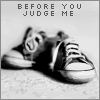
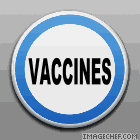
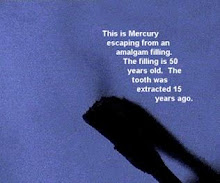

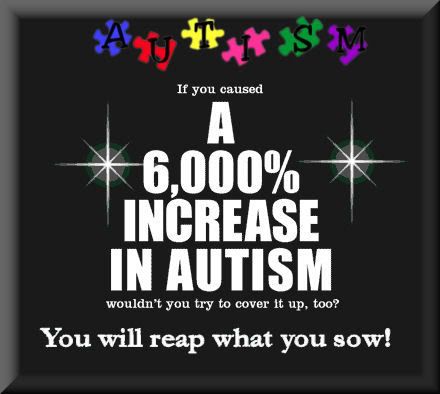
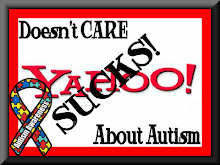
David Kirby Posted January 27, 2008 | 04:19 PM (EST)
http://www.huffingtonpost.com/david-kirby/pediatricians-abc-and-ce_b_83472.html